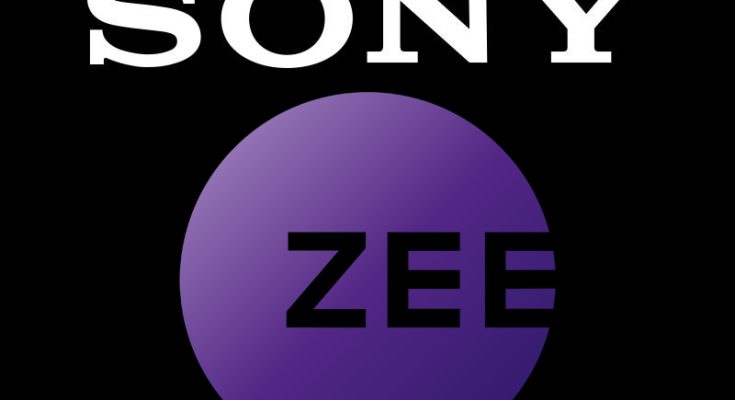#ZeeSonyMerger, #ZEEL, #SonyIndia, #Merger, #Media
IBNS-CMEDIA: After two years of stalled negotiations, Japan’s Sony Corp officially called off its planned $10 billion merger between its Indian subsidiary and Zee Entertainment Enterprises Ltd. (ZEEL) on Monday (January 22), media reports said.
According to a Reuters report, in the wake of the collapsed deal, shares of Zee Entertainment fell by as much as 30 percent on Tuesday. The deal collapsed amid competitive challenges from Disney and Mukesh Ambani’s Reliance and under the shadow of Zee’s declining profits.
The 62-page long termination notice was issued by Sony Corp just as Zee had asked for an extension of the deal deadline. Sony cited unmet merger conditions for the termination, although the primary point of contention between the two companies has been the leadership of the merged entity.
Early on Monday, the Japanese entertainment giant sent the termination letter to Zee, and it is expected that the company will officially disclose this information to the exchange later.
According to media reports, Sony, in a statement, said, “The Merger did not close by the End Date as, among other things, the closing conditions to the Merger were not satisfied by then. Sony Pictures Networks India Private Ltd (SPNI) has been engaged in discussions in good faith to extend the End Date but the Discussion Period has expired without an agreement upon an extension of the End Date. As a result, on January 22, 2024, SPNI issued a notice to ZEEL terminating the definitive agreements.”
The Disagreement
Zee wanted to put Managing Director Punit Goenka at the helm of the merged entity, while Sony opposed this choice due to a regulatory investigation against him.
Instead, Sony insisted that India Managing Director N P Singh should lead the company.
Sony has asked Zee to pay $90 million as termination fees, citing breaches of the merger agreement and initiating arbitration. Zee, however, has denied all of Sony’s allegations and announced plans to take legal action against Sony while contesting its claims in the arbitration proceedings, said media reports.
Sony’s termination letter comes after the lapse of a 30-day grace period over the weekend. Throughout this period, the two parties were unable to reach an agreement on a deadline set in late December.
In June, the Securities and Exchange Board of India (SEBI) accused the Mumbai-based media house of falsifying the recovery of loans to conceal private financing deals orchestrated by its founder, Subhash Chandra. SEBI’s interim order highlighted that Chandra and his son, Goenka, had “abused their position” and diverted funds.
While Goenka obtained relief from Securities Appellate Tribunal against the SEBI order, which restricted him from holding an executive or director position in a listed company, Sony continued to perceive the ongoing investigation as a looming corporate governance concern.
Zee stated that in the interest of the merger, Goenka had agreed to step down and had engaged in discussions regarding the appointment of a director on the board of the merged entity, according to media reports.
It further said it had proposed “protections for the conduct of pending investigations and legal proceedings in the best interest of its directors and shareholders.”
Zee said Sony did not respond to its request to extend the merger deadline by six more months after the 30-day grace period lapsed. However, Sony “did not provide any counter-proposal for extension,” it said. “These discussions did not result in any proposal from Sony but they rather have chosen to terminate,” it stated, according to reports.
Following the agreement, ZEEL scrambled to secure regulatory clearances from entities such as SEBI, CCI, ROC, among others.
After obtaining approvals from shareholders and creditors, and receiving a nod from the National Company Law Tribunal, the company completed all formalities for the merger. However, the merger could not materialise despite the efforts.
Impact of the failed deal
The deadlock in negotiations has effectively derailed the deal, which had aimed to create a $10 billion media powerhouse capable of competing with global giants such as Netflix Inc. and Amazon.com Inc.
According to Retuers, Zee’s net profit nosedived 68% in the first six months of the current financial year, with advertising revenue slipping by 3.5% and expenses climbing up to nearly 20%.
As of September 2023, Zee Entertainment Enterprises Limited (ZEEL) incurred expenses of Rs 366.59 crore on compliances related to its now-cancelled merger with Sony. Of this amount, Rs 176.20 crore was spent in the financial year ending in March 2023, and an additional Rs 190.39 crore was expended in the first six months of the current fiscal year, according to a regulatory filing by the media entity promoted by the Subhash Chandra family.
This development comes amid the current shift in the landscape of the entertainment and streaming industry in India.
Just last month, Walt Disney Co entered into a non-binding agreement with Reliance Industries, led by billionaire Mukesh Ambani, for a colossal merger of their broadcasting businesses.
Before this recent development, the proposed merger between ZEEL and Sony was poised to become the costliest entertainment deal in India. It was anticipated to establish the largest media entity in the country, boasting over 100 channels and ownership of two of India’s leading OTT platforms.
According to media reports, Zee said it will continue to “evaluate organic and inorganic opportunities for growth, leveraging the intrinsic value of its assets.”
Zee is struggling with plunging profits and depleting cash reserves in a highly competitive market where streaming giants such as Netflix and Amazon Prime are fighting for share.
On Tuesday, 23 January 2024, Zee share prices plummeted to 155.90 rupees in Mumbai on the S&P BSE 500 Index.





